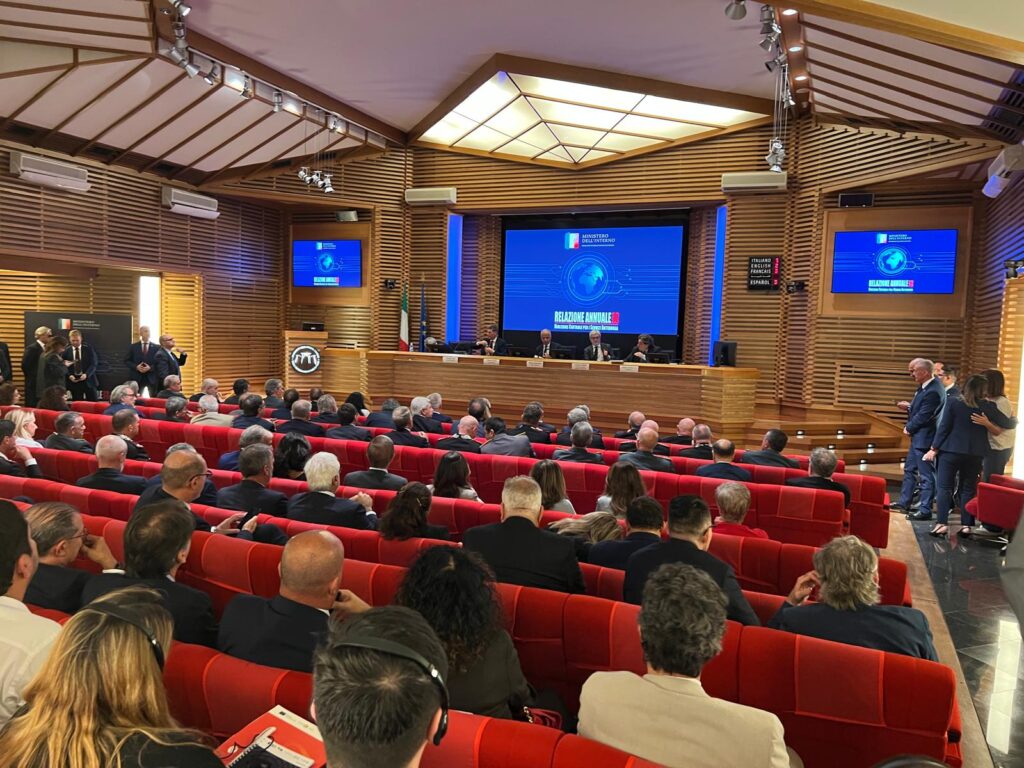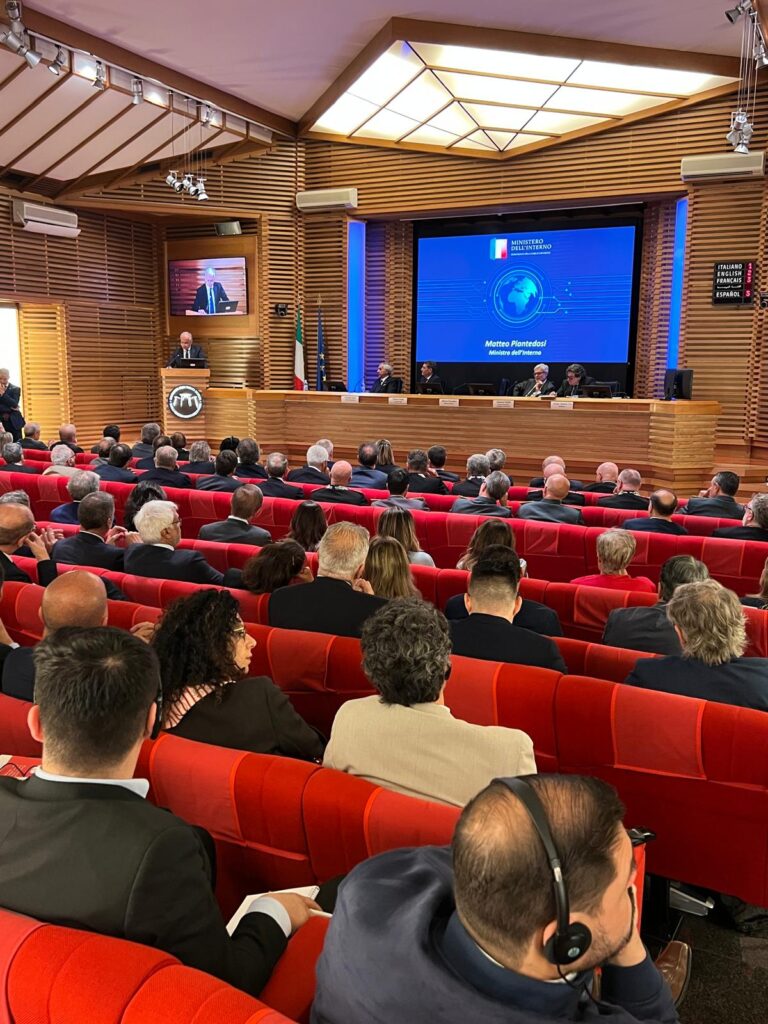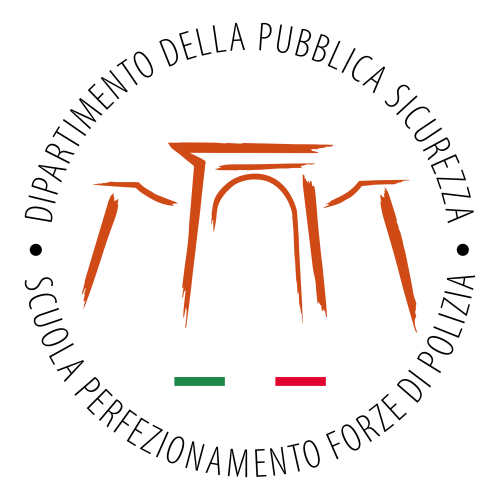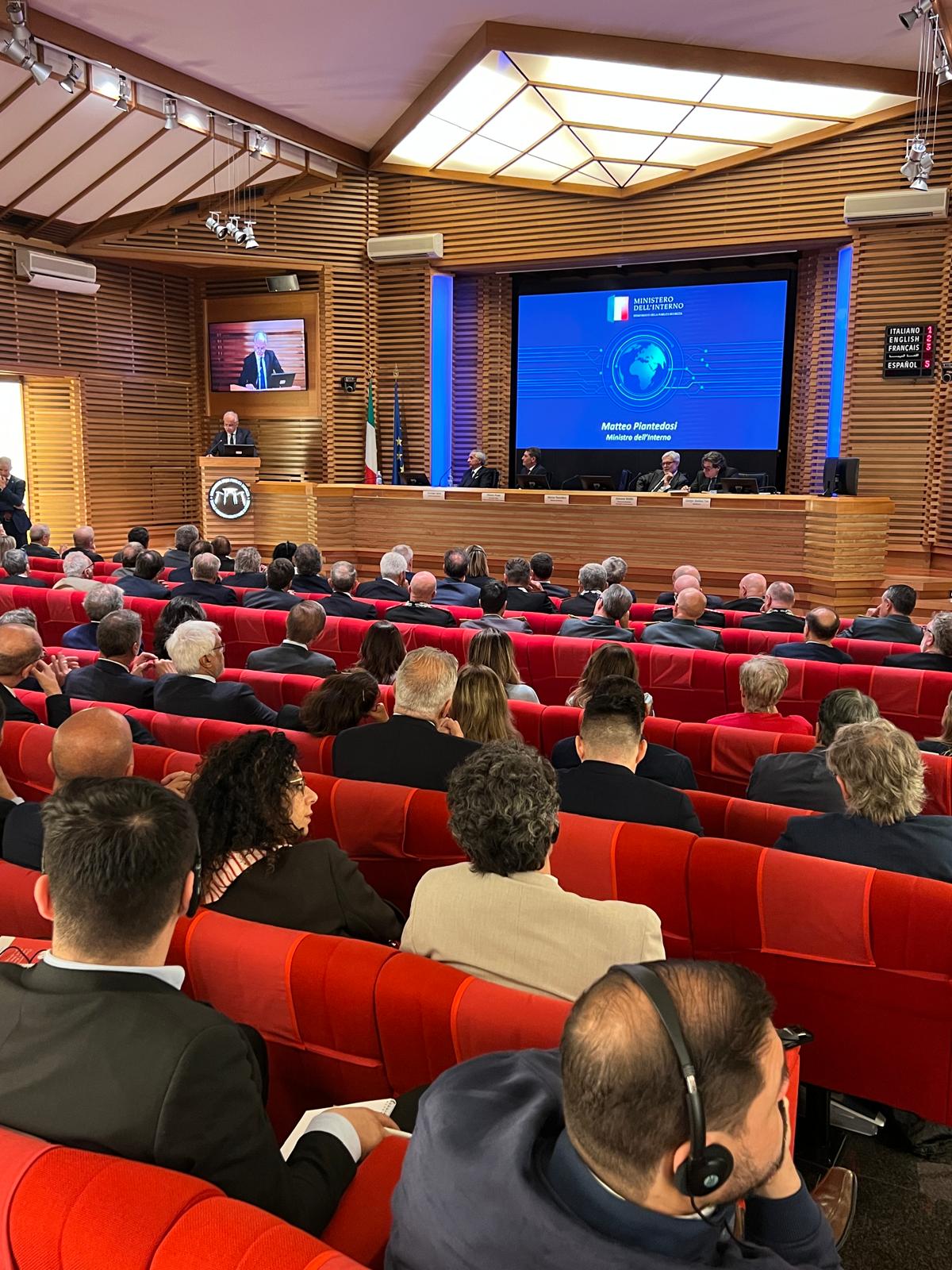On October 1, the 2025 Annual Report of the Central Directorate for Anti-Drug Services (known by its Italian acronym DCSA) was presented at Scuola di Perfezionamento per le Forze di Polizia, with data on anti-drug activities carried out in 2024.
The contents of this publication were illustrated by the DCSA Major General of the Carabinieri Corps Giuseppe Spina, in the presence of the Minister of the Interior Matteo Piantedosi, the Chief of Police – Director General of Public Security – Prefect Vittorio Pisani and the National Anti-Mafia and Anti-Terrorism Prosecutor Giovanni Melillo.
The Report is based on data from anti-drug trafficking operations in Italy and abroad, international reports and contributions provided by security experts operating in strategic drug trafficking areas, two of whom connected remotely from Peru and Iran and spoke live.
During the presentation, the video titled “DCSA 2025 – Uniti verso nuove sfide” (“2025 DCSA – United to face new challenges”), was shown to introduce the main topics addressed in the document. Drug trafficking continues to be the main source of income for criminal organizations, which today use increasingly sophisticated tools, such as encrypted communication systems, new psychoactive substances and online sales channels.
Drug trafficking quickly adjusts itself to measures adopted to counter it. Indeed, even if main ports of Belgium, Spain and the Netherlands are still the main entry hubs into Europe, drug trafficking routes are progressively fragmenting and moving towards smaller and less controlled ports. This is one of the reasons why in 2024 cocaine seizure decreased by 50% in Europe and 44% in Italy.
In this regard, Public Prosecutor Melillo stressed the need to strengthen international cooperation and underlined the positive results obtained by cooperating with South-American countries such as Brazil, Argentina, Ecuador and Chile. The latter has recently adopted a regulatory model inspired by the Italian one, i.e. a model centred upon central coordination of investigations. In this context, he emphasized that the DCSA’s network of security experts is a key factor to start joint investigations and operations.
As to this issue, the Chief of Police Prefect Pisani restated the proposal for internationally agreed regulations on the use of encryption technologies, which are now widely exploited by organized crime and difficult for investigative forces to intercept. He also underscored the need to expand the DCSA’s network of experts in strategic areas and strengthen operational alliances with foreign agencies.
In his closing speech, the Minister of the Interior Matteo Piantedosi reiterated that police forces are committed to ensuring their full support in the fight against drug trafficking. According to the Minister, drug trafficking is a complex phenomenon that also affects public health, justice, economy and social cohesion and DCSA represents an essential point of reference in what has now become one of the most complex challenges of our time.




